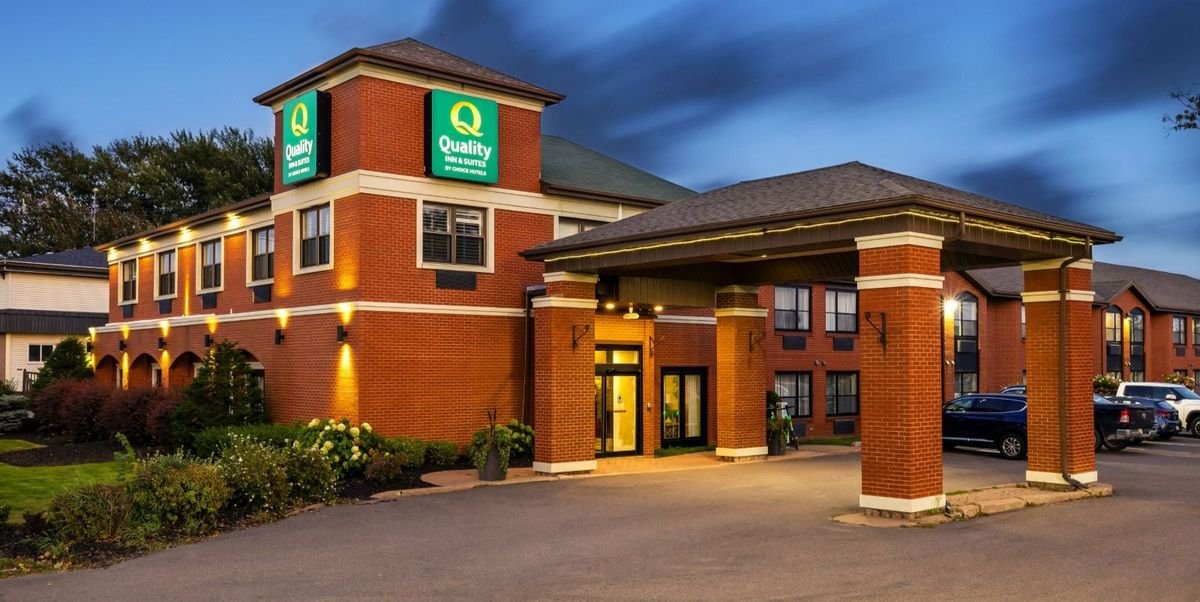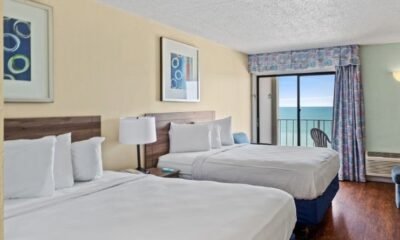NORTH BETHESDA, Maryland — At a
time when domestic RevPAR declined almost 3% in the second quarter, Choice
Hotels International is looking outside the U.S. for aggressive growth
opportunities.
On Wednesday, as part of its
second-quarter earnings, Choice Hotels International said it acquired the
remaining 50% interest in Choice Hotels Canada from its joint venture partner
InnVest Hotels for approximately $112 million. The move allows the company to
completely move from Master Franchise Agreements (MFAs) in the country to
direct franchising. It also paves the way for the company’s accelerated growth
in Canada by expanding the product offering from eight to Choice’s full 22
brands, particularly in the extended-stay segment.
“This strategic acquisition
marks the next chapter in Choice Hotels’ 70-year presence in Canada,” said
Patrick Pacious, president and CEO of Choice Hotels. “Canada presents an attractive opportunity with the lodging
market projected to grow at an average annual rate of more than 5% over the
next five years, reaching over $50 billion in total revenue by 2030.”
This powerful foundation now positions us to capture additional market share by leveraging our local market expertise and Choices’ franchisee system across all 22 brands.
Patrick Pacious
Choice’s current portfolio in Canada
includes 327 units and over 26,000 rooms, already reflected in the company’s
system count, and over 200 existing franchisees.
“This powerful foundation now
positions us to capture additional market share by leveraging our local market
expertise and Choices’ franchisee system across all 22 brands,” Pacious added during the company’s second quarter earnings conference call.
CFO Scott Oaksmith said the
company expects the business in Canada to generate approximately $18
million in EBITDA for the full year 2025.
“We anticipate growing this
EBITDA through the realization of cost synergies and driving higher revenues as
we introduce our full array of brands to this key market, which offers us
significant development growth opportunities,” he said.
Choice reported that it
increased net international rooms system size by 5% in Q2, highlighted by a 15%
increase in openings year-over-year.
Other international expansion includes
strengthening the company’s presence in Brazil by extending a master franchise
agreement for more than 10,000 rooms with Atlantica Hospitality International
for 20 years. It nearly tripled the room count in France through a direct
franchise agreement with Zenitude Hotel-Residences and signed strategic
agreements with SSAW Hotels & Resorts in China, including a distribution
agreement, which is expected to add over 9,500 rooms in 2025 and a master
franchising agreement, which is expected to add approximately 10,000 rooms over
the next five years.
Pacious said the push for
international growth really began with the company’s acquisition of Radisson
Hotels Americas in 2022. He said for the direct franchise model to work in
international countries versus MFAs, a few factors need to be present.
“In markets where small business
owners can aggregate capital and there’s the correct regulatory environment,
those are generally the two things that we look for where direct franchising
makes sense,” he said. “I would add to that the ability for owners to actually
acquire the land.”
In markets where Choice can do
direct franchising (Canada, Mexico, Australia, New Zealand, Europe and a good
part of South America), all of those factors are present.
“If you look at our mix today,
post-acquisition of [Choice Hotels] Canada, we’re now more direct franchising
than master franchising across the international portfolio,” Pacious said.
The reason we disclose some of the growth trajectories is that 5% growth is really positive. The other thing is the quality of the product in Canada and the RevPAR there is pretty significant.
Patrick Pacious
Pacious said the model should
work better in Canada now because some newer brands were already using the
direct franchise model compared to MFAs used for Choice’s original eight
brands.
“Bringing all of those to be
supported by our existing Canadian team just makes a ton of sense, both from an
opportunity perspective, but also cost avoidance of going into market [with
both models],” he said.
The extended-stay business in
Canada is particularly appealing for Choice. Pacious said some brands that rely
on new construction (like Woodspring Suites and Everhome Suites) may take more
time to develop versus brands that are set up for conversions (like MainStay
Suites and Suburban Studios) and may show up in the country sooner.
“The dynamics around development and hotel openings
and the speed with which to do it in Canada look very similar to what we have
here in the U.S. The dynamics around conversions versus new construction are
very similar,” Pacious said. “The reason we disclose some of the growth
trajectories is that 5% growth is really positive. The other thing is the
quality of the product in Canada and the RevPAR there is pretty significant.”
Pacious said there is already an
existing base of 200 franchisees who are interested in doing more Choice brands
in the country.
“As we get further into the
ownership structure and some more details… we can provide more unit growth
expectations for that market, but we’re pretty excited by the interest in our
brands up there,” he said.
Other Q2 results
Choice Hotels highlighted global
net rooms growth of 2.1%, including 3% growth for the more revenue-intensive
global upscale, extended-stay, and midscale rooms portfolio. Its global
pipeline exceeded 93,000 rooms, including nearly 77,000 domestic rooms. It also
increased the net rooms portfolio for the domestic extended-stay segment by
10.5% YOY, and the segment’s pipeline reached nearly 43,000 rooms.
The company’s domestic RevPAR
decreased by 2.9% YOY for the second quarter of 2025, with more comparative
weakness in upscale versus economy brands, reflecting macroeconomic uncertainty
and previously disclosed difficult comparisons due to the timing of Easter and
eclipse-related travel in 2024. Excluding the Easter and eclipse impacts,
domestic RevPAR declined approximately 1.6% YOY for the second quarter of 2025.
Domestic RevPAR for the
extended-stay portfolio outperformed the total lodging industry by 40 basis
points YOY, and the economy transient portfolio outperformed the economy chain
scale by 320 basis points in domestic RevPAR for the second quarter of 2025.
The company’s RevPAR growth
guidance was cut 150 bps (midpoint now -1.5%), and like-for-like adjusted
EBITDA was reduced <1%. Choice is adjusting its full-year RevPAR outlook to
-3% to 0% from -1% to +1%, reflecting a more moderate domestic expectation
amidst a changing macroeconomic backdrop. Net income for full-year 2025 was
adjusted to $261-$276 million from $275-$290 million.
Other Q2 highlights:
-
Domestic upscale,
extended-stay, and midscale net rooms portfolio grew by 2.3% YOY -
The WoodSpring Suites brand
grew by 9.7% YOY to nearly 33,000 rooms -
For its upscale brands, global
net rooms grew by 14.7% YOY, and global pipeline increased by 7% YOY, reaching
nearly 29,000 rooms -
Choice also increased its
domestic economy transient pipeline by 8% YOY to over 1,700 rooms -
The company’s franchise and
management fees came in at $177.1 million (-1.5% YOY) -
Net income was $81.7 million,
representing diluted earnings per share (EPS) of $1.75 -
EBITDA grew to $165.0 million,
a Q2 record and a 2% YOY increase
What the analysts
said
Analyst Michael Bellisario of
R.W. Baird said Choice’s earnings came a bit short of estimates due to
weaker-than-forecasted RevPAR growth and $2 million operating guarantee payout.
He said he has a positive view of the Choice’s deal in Canada.
“International expansion has
been a significant white space opportunity for Choice, and the company has been
incrementally focused on this potential growth driver, particularly since the
acquisition of Radisson,” he said.
Patrick Scholes of Truist
Securities said there weren’t too many surprises in the earnings and that he
sees major differences in growth rates coming from high net rooms growth.
“Importantly, and what we think
will likely keep the stock relatively stable today despite the RevPAR cut and
small adjusted EBITDA reduction is that Street expectations were already
subdued going into the print as implied 2H25 RevPAR guide at the midpoint of
-1.5% is not far off from consensus of -2.2%,” he said.





































You must be logged in to post a comment Login